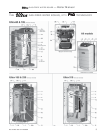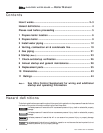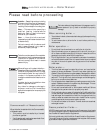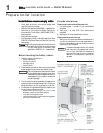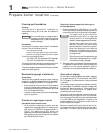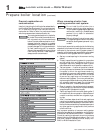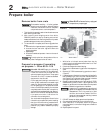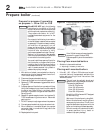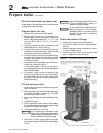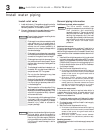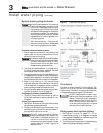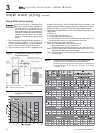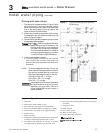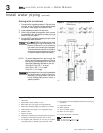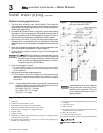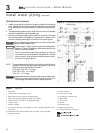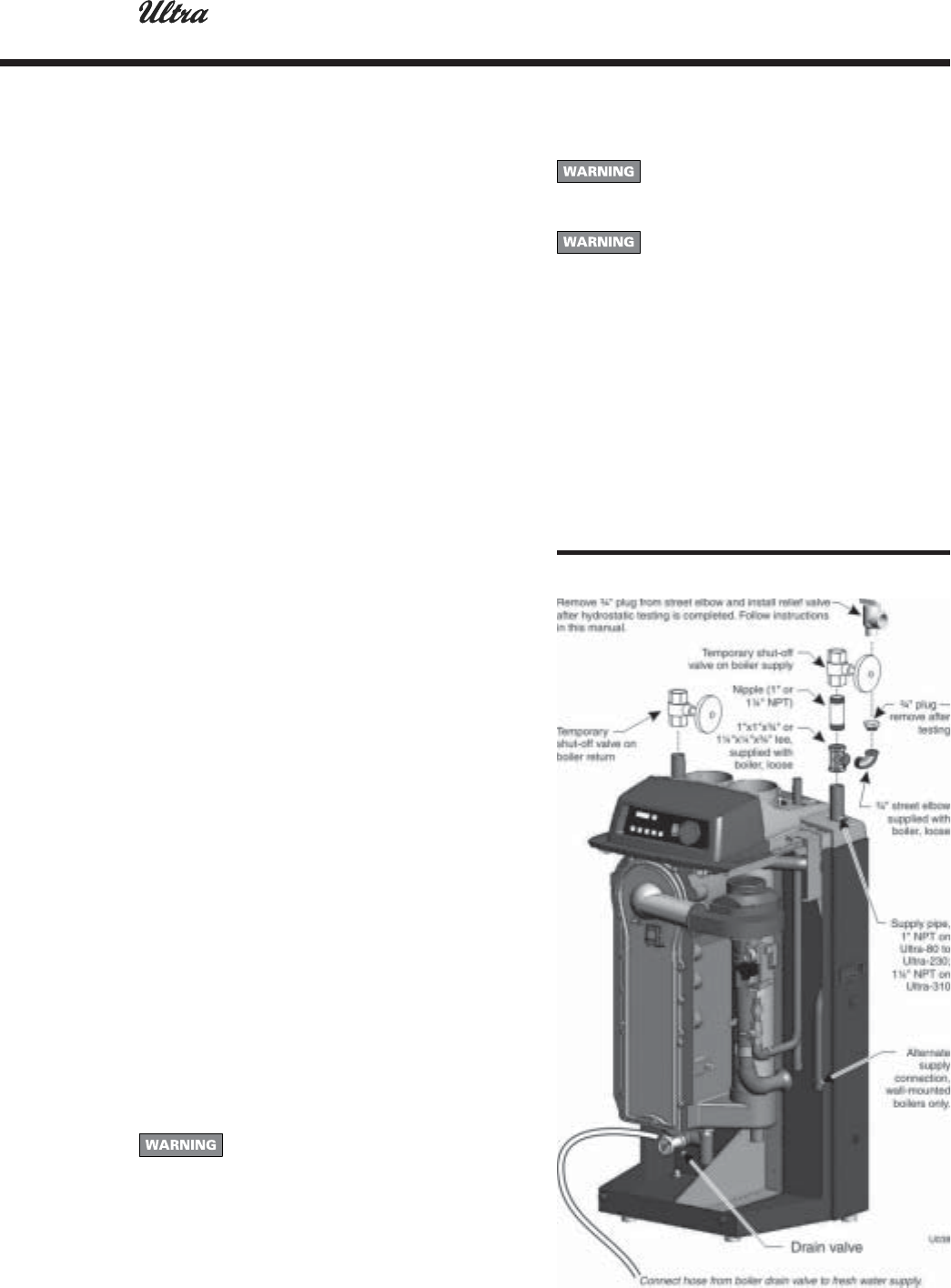
GAS-FIRED WATER BOILER — Boiler Manual
Part number 550-101-233/0903
11
GAS-FIRED WATER BOILER — Boiler Manual
Prepare boiler
(continued)
Perform hydrostatic pressure test
Pressure test boiler before permanently attaching water
or gas piping or electrical supply.
Prepare boiler for test
1. See Figure 3 for reference in following steps.
2. Remove supply line tee* and ¾” street elbow from
accessory bag. Pipe to boiler supply connection as
shown. Use pipe dope sparingly. (*1" x 1" x ¾" tee
with Ultra-80 to -230 or 1¼" x 1¼" x ¾" tee with
Ultra-310)
3. Temporarily plug the ¾" relief valve tapping in the
street elbow with a ¾" NPT pipe plug.
4. Connect a hose to boiler drain valve, the other end
connected to a fresh water supply. Make sure hose
can also be used to drain boiler after test.
5. Connect a nipple and shutoff valve to system supply
connection on the supply tee. This valve will be used
to bleed air during the fill. (Valve and nipple are not
included with boiler.)
6. Connect a shutoff valve to system return connection.
(Valve is not included with boiler.)
7. To avoid getting water on boiler, you may want to
pipe street elbows on top of shutoff valves and attach
catch-buckets beneath.
8. If convenient, install the boiler circulator and any
other piping compatible with Figure 3 that would
still allow bleeding air from shutoff valves. Follow
guidelines in this manual for piping components,
locations and sizing.
Fill and pressure test
1. Open the shutoff valves you installed on supply and
return connections.
2. Slowly open boiler drain valve and fresh water supply
to fill boiler with water. The boiler will fill quickly
because of its low water content.
3. When water reaches shutoff valves, close boiler drain
valve.
4. Close shutoff valves.
5. Slowly reopen boiler drain valve until test pressure
on the pressure/temperature gauge reaches at least
45 psig, but no higher than 55 psig.
6. Hold at test pressure for 10 minutes.
Do not leave boiler unattended. A cold
water fill could expand and cause excessive
pressure, resulting in severe personal injury,
death or substantial property damage.
7. Make sure constant gauge pressure has been
maintained throughout test. Check for leaks. Repair
if found.
2
Leaks must be repaired at once. Failure to
do so can damage boiler, resulting in
substantial property damage.
Do not use petroleum-based cleaning or
sealing compounds in boiler system.
Gaskets and seals in the system may be
damaged. This can result in substantial
property damage.
Drain and remove fittings
1. Disconnect fill water hose from water source.
2. Drain boiler through drain valve. Remove hose after
draining.
3. Remove nipples and valves unless they will remain
for use in the system piping.
4. Remove plug from relief valve street elbow. See
section 3 (page 12) to install relief valve.
Figure 3 Hydrostatic test piping connections



